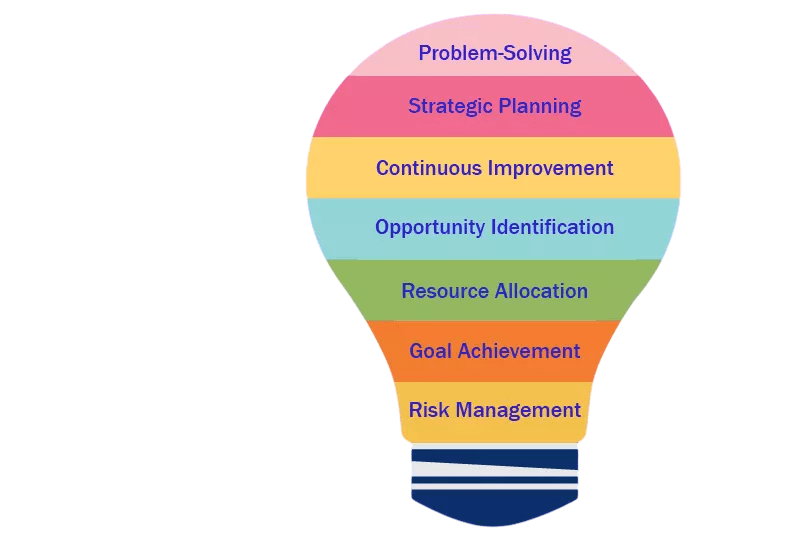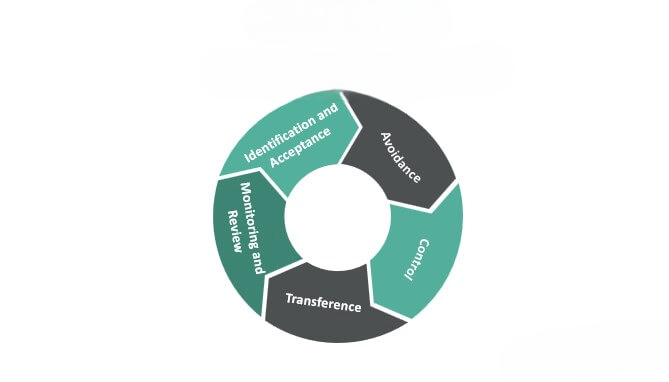
- Introduction
- Role in Decision Making
- Bridging Stakeholders and Developers
- Enhancing Efficiency
- Data Interpretation
- Risk Mitigation
- Product and Service Improvement
- Ensuring Project Success
- Conclusion
Introduction
In today’s dynamic and highly competitive business environment, organizations constantly seek ways to optimize operations, improve products and services, and maintain a competitive edge. Central to this continuous improvement process is the role of importance of Business Analysts, a critical discipline that bridges the gap between business needs and technological solutions. Business analysts (BAs) are professionals who understand business problems, gather requirements, analyze processes, and help deliver value-driven solutions. Business analysis is more than just a set of tasks; it is a strategic enabler that facilitates informed decision-making and drives organizational growth. This article explores the multifaceted role of business analysis, Product and Service Improvement emphasizing its importance in decision-making,Bridging Stakeholders and Developers, management, problem-solving, and strategic planning, as well as its contribution to business success and future trends.
Are You Interested in Learning More About Web Developer Certification? Sign Up For Our Business Analyst Online Training Today!
Role in Decision Making
One of the foundational contributions of business analysis is its influence on decision making. Organizations face complex decisions daily, ranging from product development to market expansion, process optimization, and technology adoption. Business analysts gather and analyze relevant data to provide clear insights and recommendations that support these decisions.
- Requirement Gathering: Importance of Business Analysts collect detailed requirements from various stakeholders, ensuring that decision-makers understand the scope and implications of proposed initiatives.
- Data-Driven Insights: Through careful analysis of market trends, customer feedback, and internal data, BAs offer evidence-based insights, reducing reliance on intuition or guesswork.
- Scenario Analysis: Business analysts often conduct scenario planning to evaluate different courses of action, forecasting potential outcomes, risks, and benefits. This aids leaders in choosing options aligned with business objectives.
- Balancing Priorities: By evaluating trade-offs and constraints such as budget, time, and resources, BAs help decision-makers prioritize initiatives that offer the highest value.
- Performance Management: Financial firms use analytics to measure employee performance against KPIs, identify gaps, and design targeted training or improvement plans for teams and individuals.
- Workforce Planning: Predictive analytics forecasts staffing needs based on seasonal demand, customer trends, and business goals, ensuring optimal workforce utilization and cost control.
- Risk Assessment and Fraud Detection: Advanced analytics tools detect anomalies in transactions, helping mitigate fraud and assess credit risks more accurately.
- Requirement Translation: BAs translate business needs into technical specifications that developers can implement effectively, avoiding ambiguity and reducing errors.
- Expectation Management: They clarify what is feasible within project constraints, helping manage stakeholder expectations realistically.
- Continuous Collaboration: BAs facilitate ongoing communication throughout the project lifecycle, addressing questions, changes, and feedback promptly.
- Conflict Resolution: When disagreements arise between Bridging Stakeholders and Developers and technical teams, BAs mediate to find mutually acceptable solutions.
- Process Mapping: Business analysts document current workflows to visualize processes and uncover inefficiencies or delays.
- Gap Analysis: They compare the current state with desired outcomes to identify gaps in performance, technology, or skills.
- Optimization Recommendations: Based on analysis, BAs suggest improvements such as streamlining steps, eliminating waste, or integrating new technologies.
- Change Management: Business analysts support the implementation of changes by preparing documentation, training materials, and communication plans to ease transitions.
- Data Collection: BAs identify sources of relevant data, including customer surveys, sales figures, website analytics, and operational metrics.
- Data Analysis: They use statistical techniques and software tools to analyze trends, correlations, and outliers.
- Visualization: By creating dashboards, charts, and reports, analysts present complex data in a clear and accessible manner.
- Insight Generation: Data interpretation helps in identifying customer behavior patterns, operational inefficiencies, or market opportunities.
- Customer Feedback Analysis: BAs analyze user feedback, complaints, and support data to identify pain points and improvement areas.
- Requirements Refinement: They work with product owners and development teams to refine features and add value.
- Usability Testing: Business analysts may coordinate or conduct usability testing to validate enhancements.
- Market Trends: Keeping abreast of competitor offerings and industry standards helps BAs suggest innovations.
- Revenue Increase: Improved products, marketing strategies, and customer experiences lead to higher sales.
- Cost Reduction: Process optimizations and automation reduce operational expenses.
- Market Expansion: Insights help identify new markets and customer segments.
- Agility: BAs help organizations respond quickly to changes, seizing opportunities faster.
- Sustainability: Careful analysis supports sustainable practices and risk management.
- Requirement Clarity: Clear, well-documented requirements prevent costly misunderstandings and rework.Their involvement increases the likelihood that projects are delivered on time, within budget, and meet business needs.
- Stakeholder Alignment: Continuous engagement keeps all parties informed and committed.
- Scope Management: BAs help define and control project scope, balancing flexibility and discipline.
- Quality Assurance: By validating deliverables against requirements, analysts ensure expected outcomes.
- Change Management: Managing scope changes and their impact helps projects stay on track.

Bridging Stakeholders and Developers
A key challenge in project management and product development is communication between business stakeholders (such as executives, managers, end-users, clients) and technical teams (software developers, engineers, IT staff). These groups often have different languages, Product and Service Improvement, priorities, and perspectives. Business analysts serve as a vital bridge to ensure alignment and clear understanding.
Are You Preparing for Business Analyst Jobs? Check Out ACTE’s Business Analyst Interview Questions & Answers to Boost Your Preparation!
Enhancing Efficiency
Efficiency is a major driver of business success. Business analysis contributes significantly to improving operational efficiency by identifying bottlenecks, redundancies, and opportunities for automation or process redesign.
Data Interpretation
In the era of big data, the ability to interpret and make sense of vast amounts of information is crucial. Business analysts possess strong data interpretation skills that enable them to extract meaningful insights.
Are You Considering Pursuing a Master’s Degree in Business Analyst? Enroll For Business Analyst Masters Program Training course Today!
Risk Mitigation
Customer satisfaction and innovation depend on continuously products and services Improvement. Business analysts contribute directly to this ongoing enhancement.

Product and Service Improvement
By enabling better decisions, enhancing efficiency, and driving innovation, business analysis contributes significantly to business growth.
Ensuring Project Success
Importance of Business Analysts are critical to project success, serving as the glue that holds diverse elements together.
Are You Interested in Learning More About Business Analyst? Sign Up For Our Business Analyst Online Training Today!
Conclusion
Business analysis is an indispensable discipline that connects strategy, operations, technology, and people. By supporting decision-making, Bridging Stakeholders and Developers, bridging communication gaps, enhancing efficiency, mitigating risks, and driving product improvement, importance of Business Analysts ensure organizational initiatives succeed and deliver value. As businesses grow more complex and data-driven, the role of business analysis will only become more critical. For professionals interested in this career, Product and Service Improvement, developing a mix of analytical, technical, and interpersonal skills is essential. Embracing emerging trends and continuously expanding knowledge will prepare business analysts to be key contributors to their organizations’ success in an ever-evolving marketplace.




